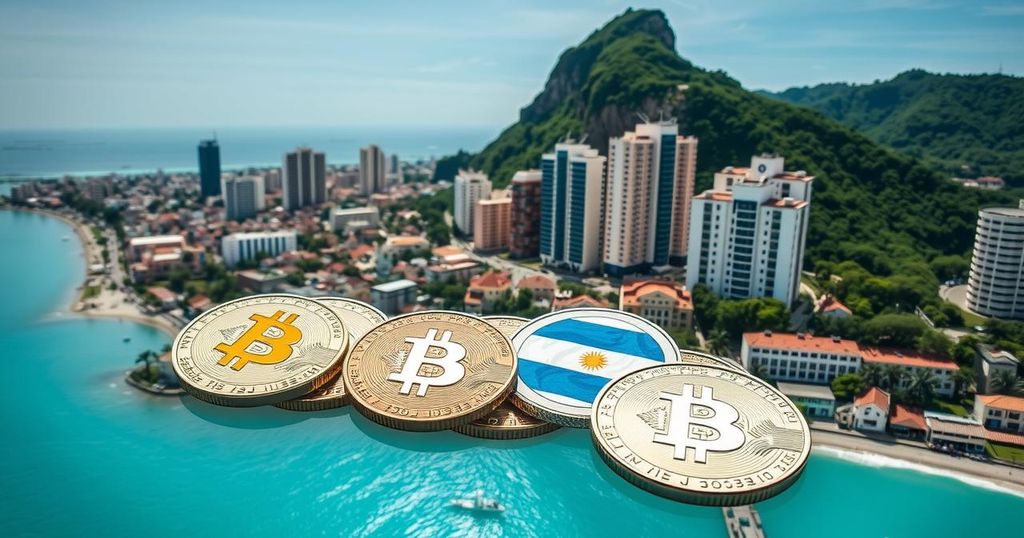This week in Latam Insights discusses El Salvador’s $1.4 billion IMF agreement contingent on reducing bitcoin activities, Argentina’s new measures to combat crypto crimes, and Brazil’s planned Senate session on cryptocurrency regulation, illustrating the region’s evolving relationship with digital currencies.
This week’s Latam Insights covers significant developments in the cryptocurrency landscape of Latin America, showcasing El Salvador’s recent deal with the International Monetary Fund (IMF), Argentina’s initiative to monitor cryptocurrency-related criminal activities, and Brazil’s upcoming Senate session to discuss the future of crypto. El Salvador has secured a $1.4 billion credit facility from the IMF, conditioned on the reduction of bitcoin usage. In parallel, Argentina’s security measures aim to combat rising crypto-related crimes, while Brazil prepares for legislative discussions on the potential of digital currencies to enhance its economy.
In a bold strategic move, El Salvador, under President Nayib Bukele, successfully negotiated a $1.4 billion credit facility from the IMF, which is earmarked for economic reform and bolstering the country’s post-pandemic recovery. However, a crucial condition was set by the IMF—El Salvador must mitigate its bitcoin-related activities. This decision reflects the IMF’s focus on supporting fiscal stability and addressing the country’s financial reliability in the international arena.
Conversely, the Argentine government has recognized the emergence of cryptocurrency crimes, prompting the introduction of Resolution 1330/2024 by its Security Ministry. This resolution authorizes police forces to explore and combat unauthorized financial intermediation activities involving cryptocurrencies. The government’s stance is a response to rising concerns over fraudulent schemes and the increasing presence of cybercrime tied to crypto usage within the nation.
On a legislative front, the Brazilian Senate is slated to conduct a session in 2025 dedicated to examining the country’s cryptocurrency sector. A request by a bipartisan group of senators underscores the growing recognition of digital assets’ significance. In this session, discussions are anticipated to address both the benefits and challenges presented by cryptocurrency adoption, with key topics likely to include the evolution of decentralized finance and market regulation.
To gain insights and keep abreast of the developing crypto landscape in Latin America, consider subscribing to the Latam Insights newsletter, which provides ongoing updates and analyses of the region’s economic activity related to cryptocurrencies.
This article encapsulates important updates regarding cryptocurrency policies and developments in Latin America, particularly focusing on the actions of El Salvador, Argentina, and Brazil. El Salvador’s agreement with the IMF marks a significant shift in its economic strategy, emphasizing the balance between cryptocurrency adoption and fiscal responsibility. Argentina’s decision to monitor crypto crimes reflects a proactive approach to regulation in an evolving financial landscape. Brazil’s legislative session indicates growing national interest in the potential and regulation of cryptocurrencies, which could influence the region’s digital economy.
In summary, the developments in El Salvador, Argentina, and Brazil reflect a broader trend in Latin America towards managing the complexities of cryptocurrency adoption. The IMF’s influence over El Salvador signals a cautious approach amidst economic recovery, while Argentina’s focus on policing crypto-related crimes exemplifies a commitment to integrating innovative technologies while safeguarding citizens. Furthermore, Brazil’s legislative engagement highlights the increasing recognition of cryptocurrencies as a vital economic factor, poised to shape the continent’s financial future.
Original Source: news.bitcoin.com






